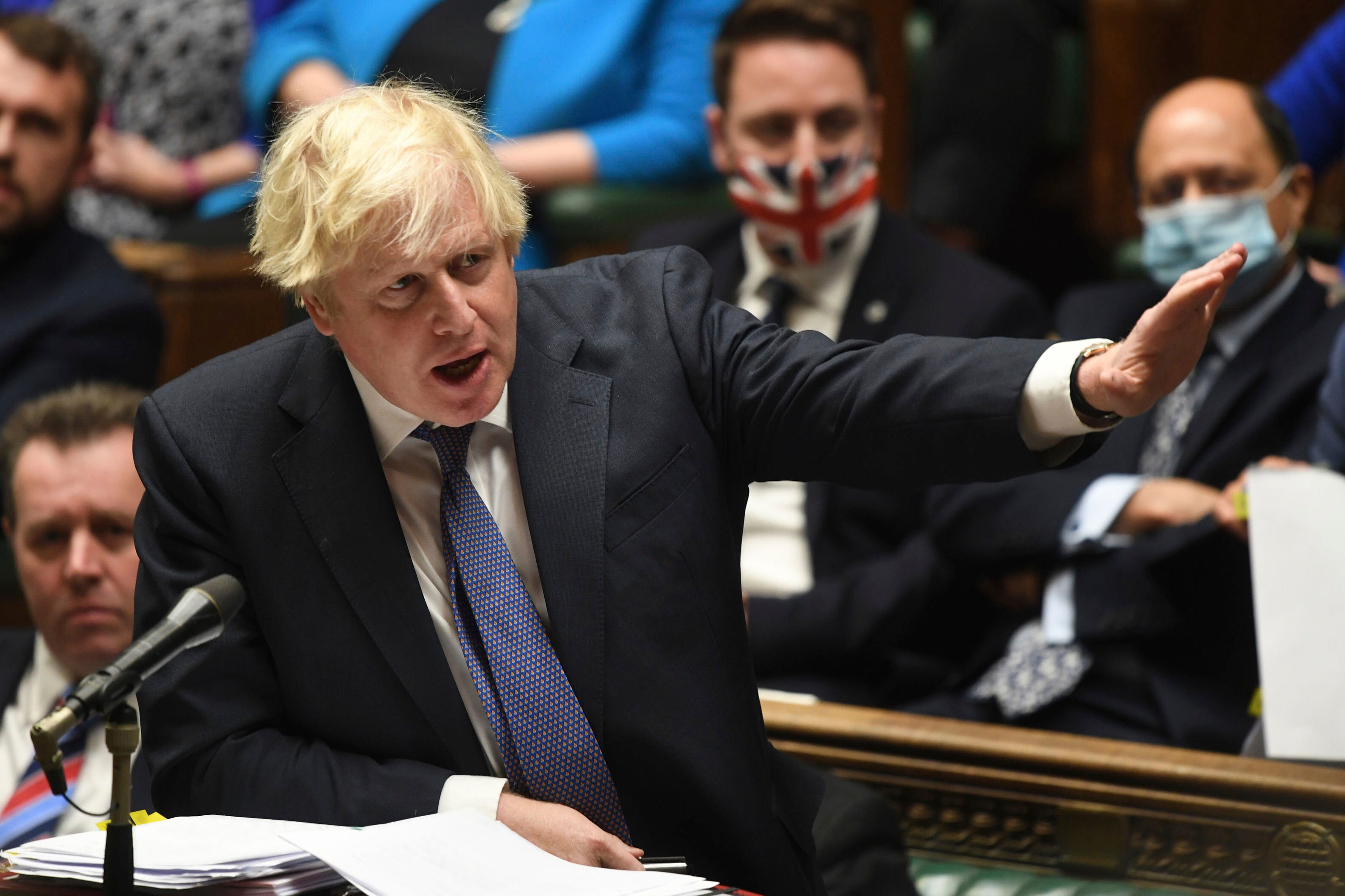Boris Johnson and Keir Starmer should know better – unparliamentary language isn’t big or clever
There is no need for MPs to call each other dodgy, cowardly, or stool pigeons, argues John Rentoul


There is no complete list of words that constitute unparliamentary language in the House of Commons. But it turns out that “dodgy” is definitely on it. Ed Miliband got away with it in 2015, when as leader of the opposition he called David Cameron “a dodgy prime minister surrounded by dodgy donors”. But Dennis Skinner, the Labour backbencher, was thrown out of the chamber the following year for calling Cameron “Dodgy Dave” over his personal finances.
That ruling seems to have stuck, and Zarah Sultana, another Labour backbencher, was asked today by Eleanor Laing, the deputy speaker, to withdraw the word when she applied it to ministers. After protesting that she couldn’t think of another word, Sultana said she wouldn’t withdraw her remarks, but she avoided being expelled.
The UK parliament website lists nine examples of terms that MPs are not allowed to use to describe each other, which include “coward”, the word Keir Starmer used yesterday to describe Boris Johnson. The others are: blackguard, git, guttersnipe, hooligan, rat, swine, stool pigeon and traitor. Some of those are so antique that they have not been used in the Commons this century, except for on occasions when MPs were quoting the rules about what they were and were not allowed to say.
“Coward”, on the other hand, is normal English, and Starmer used it when he said that other ministers had apologised on Johnson’s behalf for trying to get Owen Paterson “off the hook” of his punishment for paid lobbying, but that the prime minister himself had not. That made him, said Starmer, “a coward, not a leader”.
At the end of Prime Minister’s Questions, Michael Fabricant, the Conservative MP, objected, and the speaker asked Starmer to withdraw his remark, which Starmer duly did in a way that suggested he had expected to be told off: “I withdraw it – but he is no leader.” Thus he got attention for being rude about the prime minister, and more attention for withdrawing. Starmer’s withdrawal was so insincere that “coward” was the big headline on the video of Prime Minister’s Questions that Labour put out on social media.
Still, they were both at it. Johnson referred to Starmer’s past work for Mishcon de Reya, the law firm, as “Mishconduct”. The speaker, who later affected not to have heard “coward” at the time, picked up on that immediately, and said that if Johnson had accused Starmer of “misconduct” he should withdraw it. The prime minister repeated his childish joke and got away with it.
Starmer and Johnson were both engaged in deliberate manipulation of the rules for effect – certainly when compared to Sultana’s use of the word “dodgy”, which appeared more genuine. I don’t know if she was trying to game the system for attention, as Dawn Butler, her fellow member of the Socialist Campaign Group of MPs, did when she was suspended from the Commons for a day for saying that Johnson had lied.
That is the best-known word on the non-existent list. MPs are not allowed to call each other liars or to say that someone has lied. They are not allowed to charge each other with hypocrisy, which is similar, with its “imputation of false or unavowed motives”, as Erskine May, the guide to parliamentary procedure, puts it. (Erskine May also lists some other words and phrases that have been ruled out of order, including “idiot” and “preposterous buffoon” – that last was the late Paul Flynn’s description of John Hayes.)
These rules are widely regarded outside the Commons as being as dated as calling someone a stool pigeon, and many observers will have regarded yesterday’s Prime Minister’s Questions as one of the liveliest sessions in recent years, in which both party leaders seemed to be fighting for their lives. It was almost as if there was an election on.
Even so, I defend the rules of politeness in parliament, just as I defend them outside. And I do so not just because I am pious, but because I think they are bad politics. It is too easy for MPs and those of us in the press gallery to get carried away with the thrill of democratic combat. Insults and name-calling don’t persuade persuadable voters. Calling the prime minister a coward might please the converted, but it seems unlikely to push floating voters in Labour’s direction. They may be increasingly worried about incompetence, bad government and failure to deliver promises, and Starmer needs to use the moderate language of sorrowful disappointment.



Join our commenting forum
Join thought-provoking conversations, follow other Independent readers and see their replies
Comments